第83章 PROPOSITIONS.(17)
Note.- If these statements be compared with what we have pointed out concerning the strength of the emotions in this Part up to Prop. xviii., we shall readily see the difference between a man, who is led solely by emotion or opinion, and a man, who is led by reason. The former, whether will or no, performs actions whereof he is utterly ignorant; the latter is his own master and only performs such actions, as he knows are of primary importance in life, and therefore chiefly, desires; wherefore I call the former a slave, and the latter a free man, concerning whose disposition and manner of life it will be well to make a few observations.
Prop. LXVII. A free man thinks of death least of all things; and his wisdom is a meditation not of death but of life.
Proof.- A free man is one who lives under the guidance of reason, who is not led by fear (IV:lxiii.), but who directly desires that which is good (IV:lxiii.Coroll.), in other words (IV:xxiv.), who strives to act, to live, and to preserve his being on the basis of seeking his own true advantage; wherefore such an one thinks of nothing less than of death, but his wisdom is a meditation of life. Q.E.D
Prop. LXVIII. If men were born free, they would, so long as they remained free, form no conception of good and evil.
Proof.- I call free him who is led solely by reason; he, therefore, who is born free, and who remains free, has only adequate ideas; therefore (IV:lxiv.Coroll.) he has no conception of evil, or consequently (good and evil being correlative) of good. Q.E.D.
Note.- It is evident, from IV:iv., that the hypothesis of this Proposition is false and inconceivable, except in so far as we look solely to the nature of man, or rather to God; not in so far as the latter is infinite, but only in so far as he is the cause of man's existence.
This, and other matters which we have already proved, seem to have been signifieded by Moses in the history of the first man. For in that narrative no other power of God is conceived, save that whereby he created man, that is the power wherewith he provided solely for man's advantage; it is stated that God forbade man, being free, to eat of the tree of the knowledge of good and evil, and that, as soon as man should have eaten of it, he would straightway fear death rather than desire to live. Further, it is written that when man had found a wife, who was in entire harmony with his nature, he knew that there could be nothing in nature which could be more useful to him; but that after he believed the beasts to be like himself, he straightway began to imitate their emotions (III:xxvii.), and to lose his freedom; this freedom was afterwards recovered by the patriarchs, led by the spirit of Christ; that is, by the idea of God, whereon alone it depends, that man may be free, and desire for others the good which he desires for himself, as we have shown above (IV:xxxii.).
Prop. LXIX. The virtue of a free man is seen to be as great, when it declines dangers, as when it overcomes them.
Proof.- Emotion can only be checked or removed by an emotion contrary to itself, and possessing more power in restraining emotion (IV:vii.). But blind daring and fear are emotions, which can be conceived as equally great (IV:v. and IV:iii.): hence, no less virtue or firmness is required in checking daring than in checking fear (III:lix.Note); in other words (Def. of the Emotions:xl. and xli.), the free man shows as much virtue, when he declines dangers, as when he strives to overcome them. Q.E.D.
Corollary.- The free man is as courageous in timely retreat as in combat; or, a free man shows equal courage or presence of mind, whether he elect to give battle or to retreat.
Note.- What courage (animositas) is, and what I mean thereby, I explained in III:lix.Note. By danger I mean everything, which can give rise to any evil, such as pain, hatred, discord, &c.
Prop. LXX. The free man, who lives among the ignorant, strives, as far as he can, to avoid receiving favours from them.
Proof.- Everyone judges what is good according to his disposition (III:xxxix.Note); wherefore an ignorant man, who has conferred a benefit on another, puts his own estimate upon it, and, if it appears to be estimated less highly by the receiver, will feel pain (III:xlii.). But the free man only desires to join other men to him in friendship (IV:xxxvii.), not repaying their benefits with others reckoned as of like value, but guiding himself and others by the free decision of reason, and doing only such things as he knows to be of primary importance.